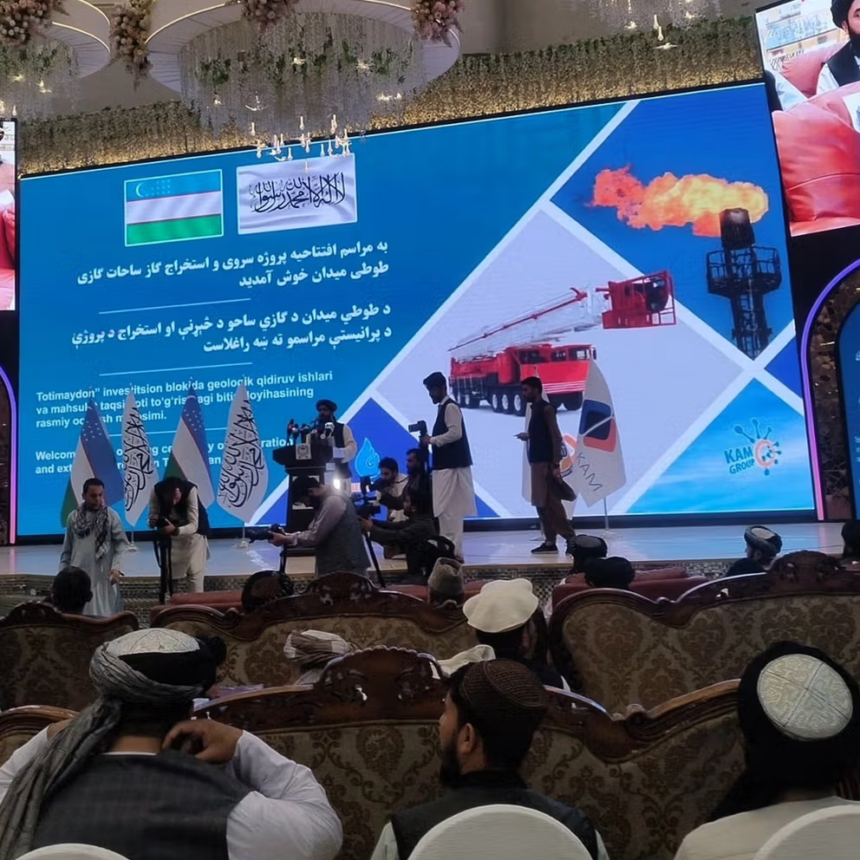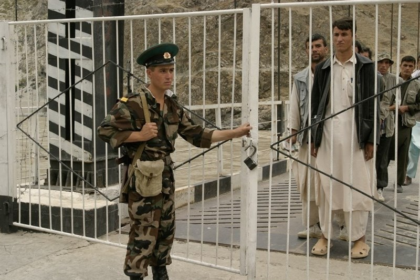RASC News Agency: The Taliban formally inaugurated a gas survey and extraction project in the Toti field of Jawzjan province on Sunday, September 14, in a ceremony attended by senior Taliban officials and representatives from Uzbekistan. According to a statement issued by the Taliban’s Economic Deputy Office, the contract for surveying and extracting gas in Totai field has been awarded to Uzbek companies. The statement highlighted the presence of Ismatullah Irgashov, Uzbekistan’s special representative for Afghan affairs, and Mullah Abdul Ghani Baradar, the Taliban’s Deputy Economic Head, at the inauguration, emphasizing the purported economic significance of the project for Afghanistan.
Mullah Abdul Ghani Baradar claimed: “Through this project, Afghanistan’s dependence on imported electricity will decrease, and a portion of the country’s energy needs will be met through domestic resources.” He further asserted that gas extraction in Totai field could play a pivotal role in Afghanistan’s economic development and energy self-sufficiency.
However, analysts warn that these statements largely serve propagandistic purposes. Over the past two years, the Taliban have announced several energy projects across Afghanistan, framing them as demonstrations of administrative competence and modernization. Yet, historical evidence demonstrates that most of these initiatives have either been delayed indefinitely or failed to produce tangible benefits for Afghanistani citizens. Despite lofty promises, these projects often remain symbolic, offering minimal improvement to the country’s chronically underdeveloped infrastructure and energy sector.
The Totai field project, if operationalized, could theoretically reduce reliance on imported electricity, provide gas for industrial and residential use, and create limited employment opportunities. Nonetheless, experts emphasize that the project’s potential benefits are heavily contingent on competent management, functioning infrastructure, and political stability all of which are critically lacking under Taliban rule. Without these conditions, the initiative is more likely to serve as a showcase for the Taliban’s media and public relations campaigns than as a genuine contribution to Afghanistan’s energy security.
Moreover, critics argue that the project reflects the broader pattern of the Taliban’s economic strategy: prioritizing high-profile projects that can be leveraged for propaganda while systemic mismanagement, corruption, and neglect continue to undermine essential services for ordinary citizens. For the majority of the Afghanistani population, whose daily lives remain constrained by energy shortages, food insecurity, and lack of employment, the Totai field initiative may offer little practical relief.
In sum, while the Taliban present the Totai gas project as a milestone of self-sufficiency and economic progress, its ultimate impact remains highly uncertain. Without transparency, independent oversight, and accountable governance, the project risks becoming another emblem of the regime’s capacity for spectacle rather than a genuine driver of national development.






